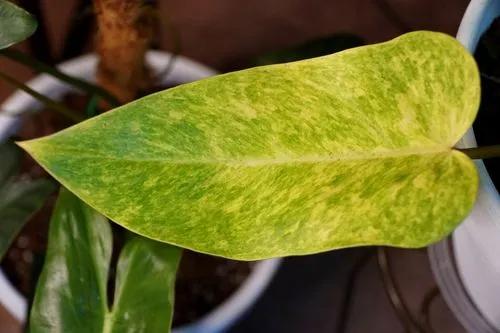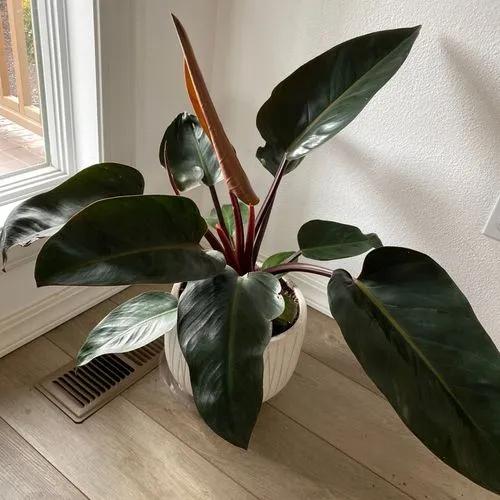Aglaonema, also known as Chinese Evergreen, is a highly decorative plant with several interesting varieties.1 It is one of the most popular houseplants and the color variations—from dark green to silver, and some with hints of red—add to your home's decor. Aglaonemas are slow-growing, attractive, and make excellent foliage plants. They have large, narrow, and glossy oval leaves on short stems. Best of all, it does not like full sun, so it is perfect for indoors, especially if window light is a commodity in your home.
Cherry Chinese Evergreen Care
Aglaonema 'Black Cherry'



How to Care for the Plant

Water

Water thoroughly in the summer and mist the plant often to raise the humidity. During the winter, reduce watering but do not let the plant dry out completely.

Fertilizer

Feed your aglaonema with slow-release pellets or liquid fertilizer during the growing season.

Sunlight

The darker green varieties of aglaonema can grow in near shade, while the variegated varieties require brighter light. Do not expose any variety of aglaonema to direct sun.

Soil

A well-drained, lightly acidic potting soil is perfect for aglaonemas.

Temperature

These plants do not like cold drafts or temperatures below 65 degrees. Be sure to keep it away from drafty windows or vents and the warmer the spot you can find, the better.

Additional

Beware of the fruit of the A. crispum, which is toxic. It is best to avoid this variety if you have children or pets who may be curious about its tiny red fruits.

Popularity

711 people already have this plant 234 people have added this plant to their wishlists
Discover more plants with the list below
Popular articles






